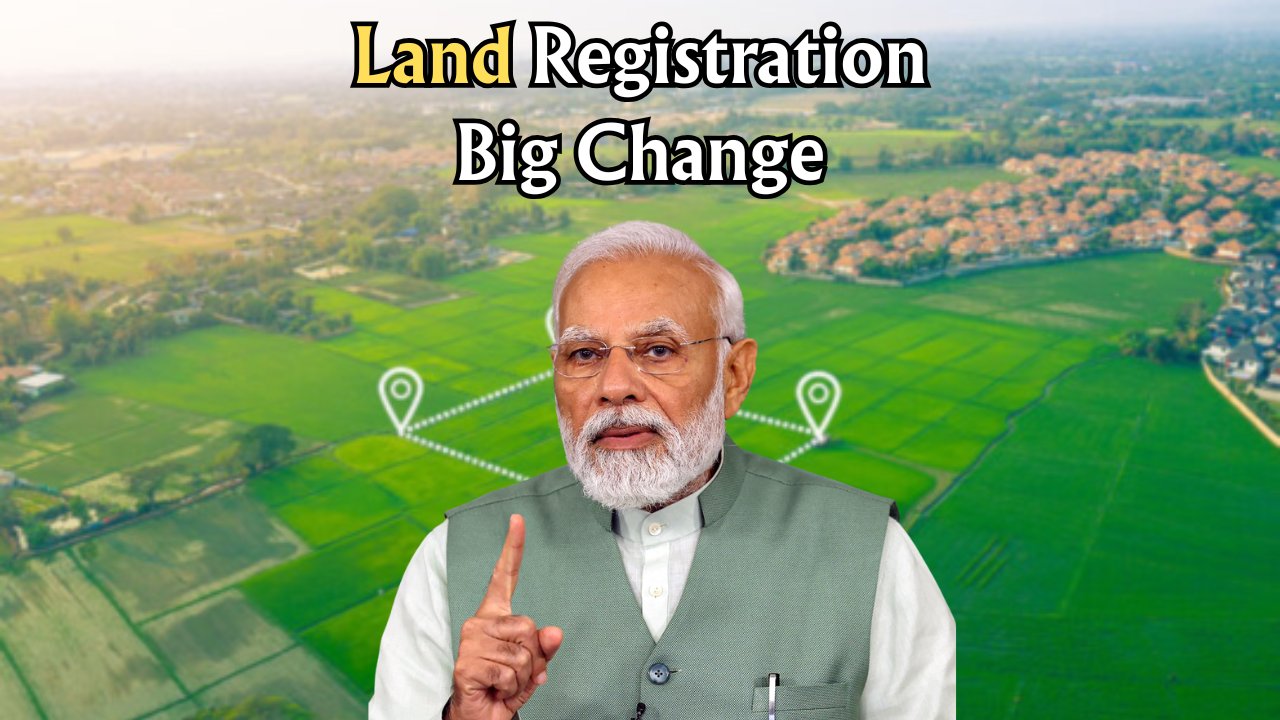In a landmark move to make property ownership more accessible and affordable, the Indian government has announced significant changes to land registration rules, effective from May 15, 2025. Under the new policy, eligible individuals can register land for less than ₹100, aiming to promote transparency, reduce corruption, and encourage more people to formalize their land ownership.
What Are the New Land Registration Rules?
Starting May 15, 2025, the following major changes will apply:
Reduced Registration Fee: Land registration fees have been drastically reduced to below ₹100 for eligible transactions.
Online Registration Portal: An online portal has been launched to simplify the registration process.
Priority for Certain Categories: Specific groups such as farmers, low-income families, and women will receive priority in the registration process.
Waiver of Traditional Charges: Traditional stamp duty and service charges are waived in many cases.
Instant E-Certificates: The government will issue electronic certificates immediately after successful registration.
State-Wise Implementation: Implementation will vary based on local land laws across different states.
Enhanced Fraud Detection: Stronger identity verification processes have been introduced to prevent fraud.
Who Is Eligible for ₹100 Land Registration?
The government has outlined clear eligibility criteria for availing this low-cost registration facility:
Farmers transferring ancestral land
Families below the poverty line (BPL)
Women purchasing land in their own name
Individuals buying agricultural land under 1 acre
First-time landowners registering property
Widows and senior citizens transferring property
Tribal community members formalizing landholdings
Benefits of the New Land Registration Policy
This initiative is expected to bring multiple benefits to citizens:
Affordability: Makes land ownership accessible to all sections of society.
Reduced Dependence on Middlemen: Minimizes reliance on agents, reducing associated costs.
Fraud Reduction: Enhanced verification processes aim to minimize fraud and title disputes.
Boost to Rural Development: Encourages secure ownership and development in rural areas.
Empowerment of Vulnerable Groups: Provides opportunities for women and marginalized communities to own land.
Digital Efficiency: Speeds up legal documentation through digital means.
Key Features of the New System
| Feature | Details |
|---|---|
| Registration Fee | Less than ₹100 |
| Eligibility | Farmers, BPL families, women, first-time buyers |
| Mode of Registration | Online through government portal |
| Stamp Duty | Waived for eligible transactions |
| Processing Time | Within 7 working days |
| E-Certificate | Issued instantly post-verification |
| Fraud Prevention Measures | Aadhaar verification, GPS-linked land records |
| State Implementation Timeline | May vary across different states |
Step-by-Step Process to Register Land for ₹100
Visit the Official Portal: Access your state’s official land registration website.
Create an Account: Register using your Aadhaar-linked mobile number.
Initiate New Registration: Select ‘New Registration’ and fill out land ownership details.
Upload Documents: Provide necessary documents like ID proof, land papers, and photographs.
Pay Registration Fee: Complete the payment online (₹100 or less).
Verification Process: Await electronic verification and digital inspection by authorities.
Download E-Certificate: Upon approval, download the electronic certificate of land ownership.
Documents Required for Registration
Aadhaar Card
PAN Card
Land Ownership Proof (e.g., previous title deed or survey number)
Passport-sized Photographs
Address Proof (e.g., utility bill or ration card)
Caste Certificate (for tribal land registration)
Income Certificate (for BPL registration)
Widow/Senior Citizen Certificate (if applicable)
Important Points to Remember
Eligibility Specific: Only certain categories can avail the reduced fee.
Accuracy is Crucial: Providing false information can lead to cancellation of ownership.
Mandatory Online Registration: Most cases require online registration.
Possible Physical Verification: Random checks may be conducted.
Dispute Resolution: Any disputes post-registration will be addressed through fast-track courts.
Comparison: Old System vs New System
| Aspect | Old System | New System |
|---|---|---|
| Average Cost | ₹15,000–₹50,000+ | Less than ₹100 |
| Process Duration | 1–3 months | 7–10 days |
| Mode | Mostly offline | Fully online |
| Fraud Protection | Limited | Robust digital verification |
| Documentation | Manual | Electronic documents |
| Accessibility | Complex | Simple and citizen-friendly |
Impact of the New Registration Rules
The new policy is expected to have a wide-ranging impact:
Legal Registration for Farmers: Millions can now legally register inherited or newly purchased lands.
Increased Women Participation: Encourages women to own land, promoting gender equality.
Digitization of Land Records: Supports the government’s goal of 100% land record digitization.
Access to Financial Services: Proper documentation facilitates easier access to agricultural loans and subsidies.
Reduction in Disputes: Aims to decrease land ownership disputes at village and district levels.
This reform is a significant step towards simplifying land ownership and making it more inclusive. Citizens are encouraged to take advantage of this opportunity to secure their land rights efficiently and affordably.














